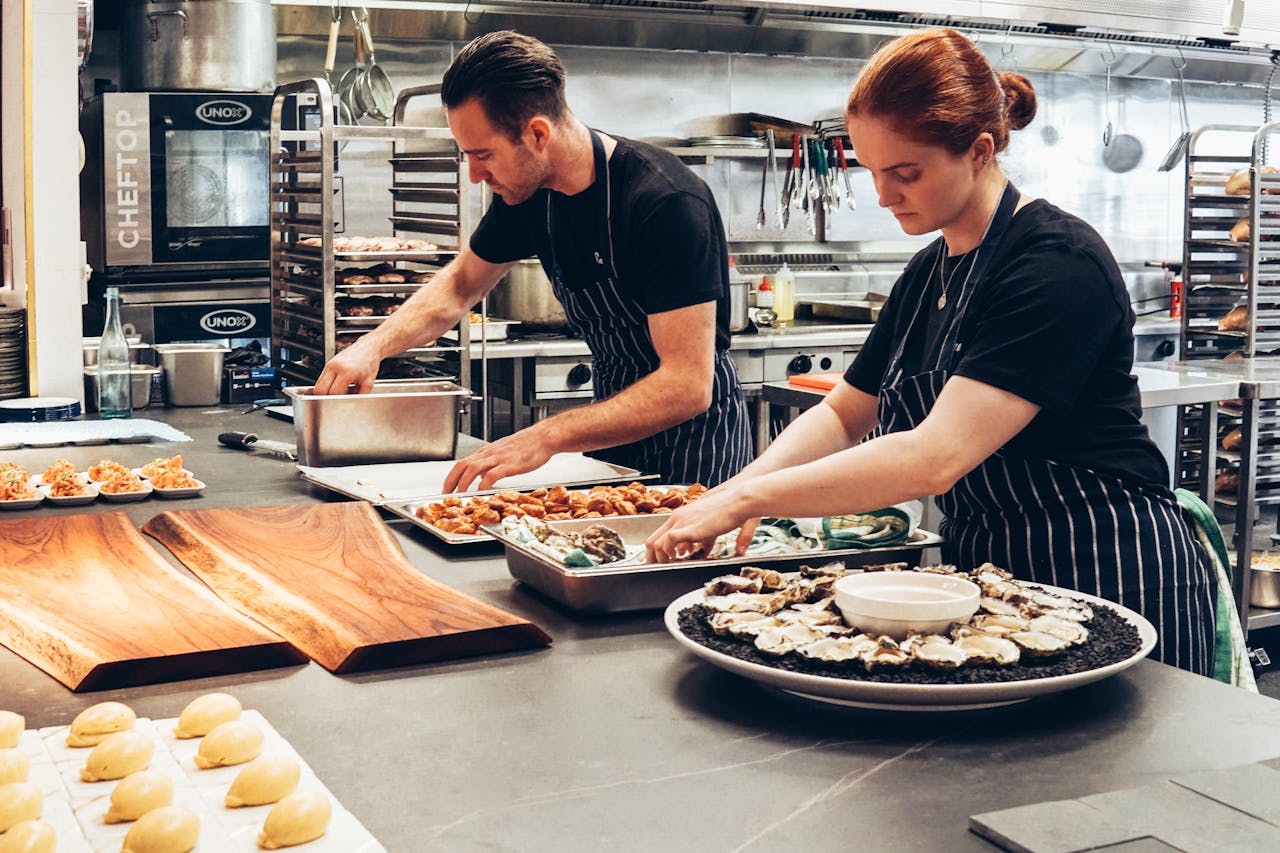
In the catering business, profitability is key to long-term success. To thrive and outshine competitors, effective strategies are essential. Moreover, understanding the importance of profitability and implementing smart tactics allows caterers to stand out in a crowded market.
So, to help you run a profitable catering business, let’s explore eight expert tips curated for the industry’s competitive environment.
Define Your Niche
Identifying a niche market is crucial for catering businesses. Focusing on a specific market segment, such as corporate events or vegan cuisine, allows businesses to tailor their services to meet specific needs and preferences. For example, by defining your niche in the catering industry, you gain clarity on where to focus your investments, such as specific food processing equipment and hiring the right personnel.
This specialisation sets them apart from competitors, allowing targeted marketing efforts and higher customer loyalty. Niche markets offer the opportunity to showcase expertise, create unique offerings, and ultimately drive profitability through a focused and differentiated approach.
Perfect Your Menu
Creating a versatile yet concise menu for catering events involves balancing diversity and manageability. Curating a selection that showcases a range of flavours while remaining operationally feasible allows caterers to cater to varied preferences without compromising quality or efficiency.
Offering unique and enticing dishes is pivotal in capturing clients’ interest and standing out in a competitive market. Each item on the menu should be thoughtfully designed to not only please the palate but also reflect the brand’s identity and culinary prowess, creating a memorable dining experience that leaves a lasting impression on clients.
Streamline Operations
Streamlining strategies can enhance efficiency and cut costs in catering operations. Utilising tools, technologies, and streamlined methods can significantly optimise various aspects of the catering process. From automated inventory management systems to efficient scheduling software, these solutions can streamline workflows, reduce waste, and enhance productivity.
Implementing innovative logistics practices, such as route optimization for deliveries, can further boost operational efficiency. Embracing technology and innovative approaches maximises resources and minimises operational complexities, improving service quality and profitability.
Build Strong Vendor Relationships
Nurturing vendor relationships allows caterers to access favourable deals, reliable deliveries, and priority access to quality ingredients. Practical negotiation skills are crucial in securing competitive pricing and better terms, ultimately contributing to cost savings and improved profit margins.
Maintaining open communication, expressing appreciation for partnerships, and collaborating on menu development can foster long-term, mutually beneficial relationships with suppliers. Building trust and rapport with vendors ensures consistent ingredient quality and enhances the business’s overall operational efficiency and reputation.
Marketing and Promotion
Implementing tailored marketing strategies is essential for attracting clients and promoting services effectively. Combining online and offline tactics can maximise reach and engagement with potential customers. Utilising social media platforms, creating a visually appealing website, and leveraging email marketing campaigns can boost online presence and attract a digital audience.
Simultaneously, traditional methods like local networking events, partnering with event planners, and utilising print advertising can help caterers reach a broader demographic. Diversifying marketing efforts across various channels allows caterers to increase brand visibility, generate leads, and ultimately drive business growth in the dynamic catering landscape.
Focus on Customer Service
Prioritising responsive communication, attentiveness to specific client needs, and prompt issue resolution can significantly enhance customer satisfaction and loyalty. Personalising service experiences, seeking feedback for continuous improvement, and going the extra mile in service delivery showcase a commitment to client care.
Consistently delivering exceptional service that goes beyond mere satisfaction. This way, you can build trust, loyalty, and positive word-of-mouth referrals, solidifying your reputation and standing out in a competitive market.
Pricing Strategies
Effective pricing strategies in the catering industry involve finding a delicate balance between profitability and competitiveness. Caterers must consider various factors when setting prices for their services, such as ingredient costs, overhead expenses, labour fees, market demand, and competitor pricing. Conducting thorough cost analysis, understanding the value proposition offered, and segmenting pricing based on service tiers can help caterers optimise their pricing structure.
Offering transparent pricing, creating customizable packages, and providing clear justification for pricing decisions can instil confidence in clients and justify premium pricing for exceptional services. Strategically pricing services to reflect quality and value can maximise revenue while remaining competitive in the market.
Monitor Financial Performance
Through monitoring revenue, expenses, and profitability metrics, caterers can gain insights into their operations’ financial health. Implementing robust budgeting practices, accurate forecasting, and prudent financial management are essential for sustainable growth and profitability.
Regularly reviewing financial reports, identifying cost-saving opportunities, and adapting strategies based on financial data can help caterers make informed decisions and steer their businesses toward long-term success.
Takeaway
Successfully navigating the catering industry requires a strategic approach that encompasses various aspects of business operations. Prioritising the tips shared here helps caterers pave the way for sustained growth and success. Embracing these key pillars of business excellence enables catering entrepreneurs to stand out in a competitive market, attract loyal clientele, and build a reputation for quality and reliability in their service offerings.

